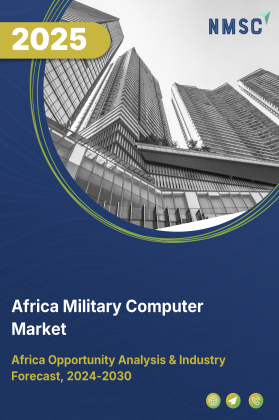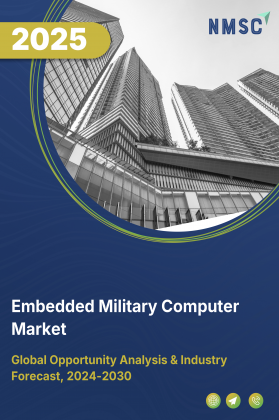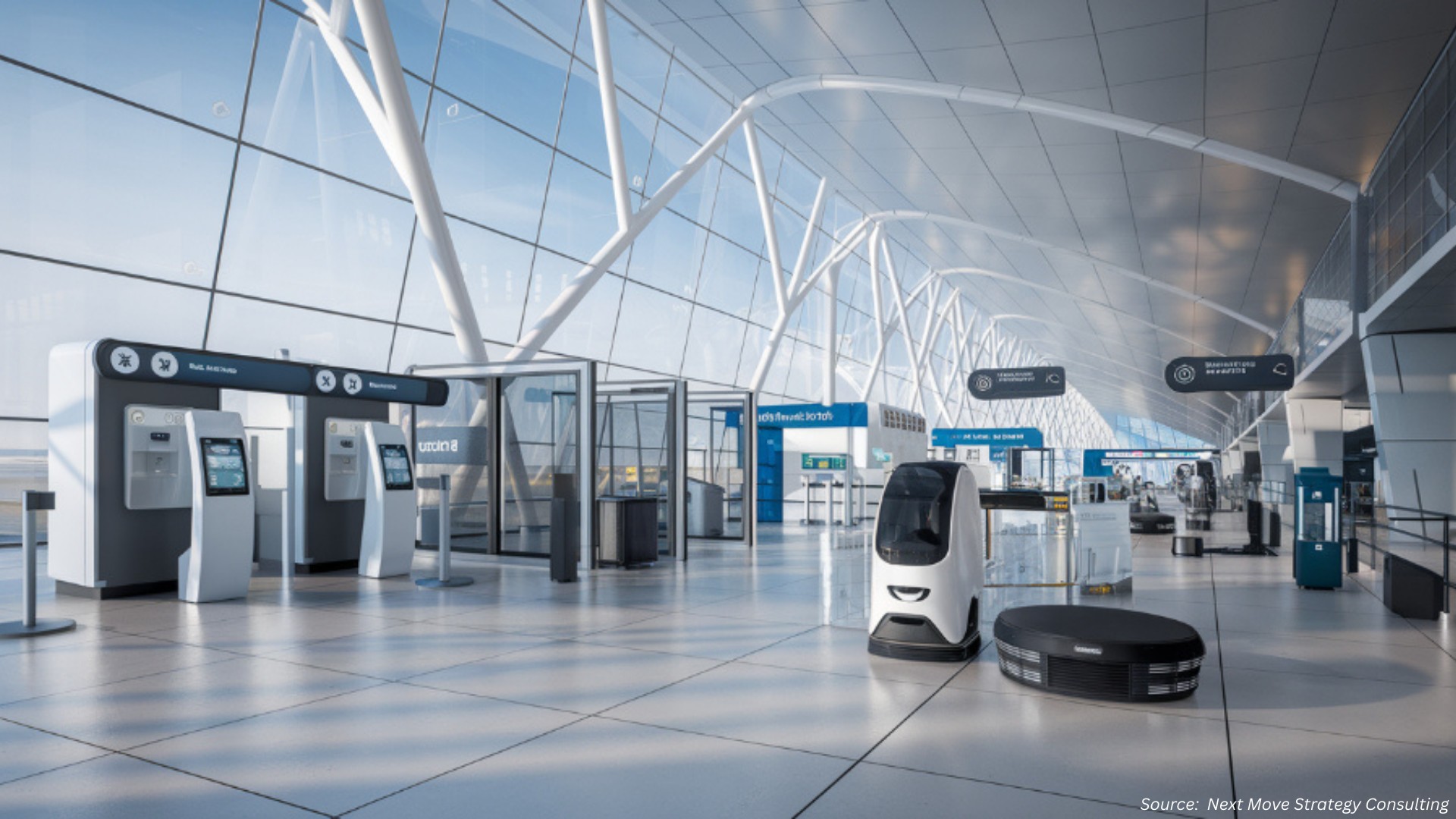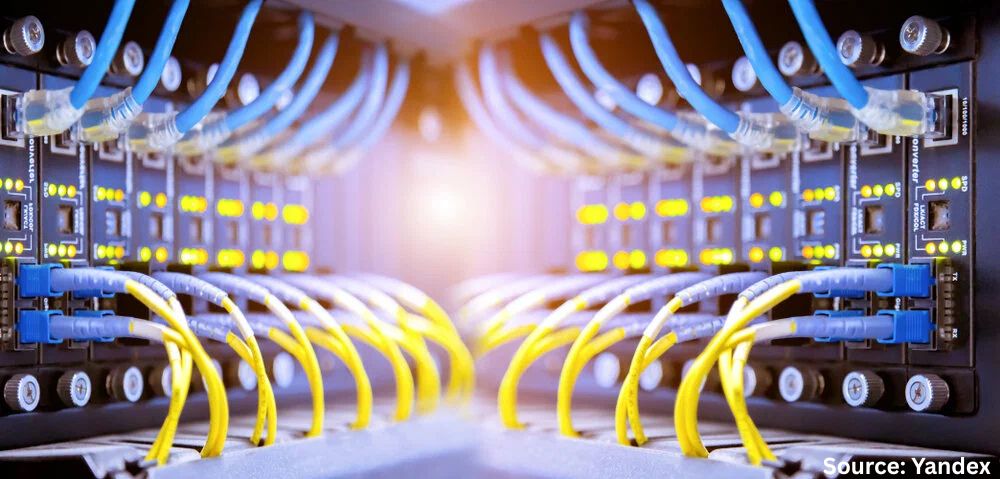
Africa Military Computer Market by Component (Hardware, Software, and Service), by Product (Rugged Computer, Embedded Computer, and Wearable Computer), by Application (Command and Control Systems, Communication Systems, Combat and Tactical Operations, Intelligence, Surveillance, and Reconnaissance (ISR) Systems, and Others), and by End-User (Army, Navy, and Air Force) – Opportunity Analysis and Industry Forecast, 2025–2030
Industry Outlook
The Africa Military Computer Market size was valued at USD 40.4 million in 2024, and is projected to grow to USD 42.67 million by 2025. Additionally, the industry is expected to continue its growth trajectory, reaching USD 50.1 million by 2030, at a CAGR of 3.2% from 2025 to 2030.
The factors such as increasing military capability to strengthen defense system and increase in defense expenditure drives market growth. However, lack of technological progress poses significant challenges to market expansion. On the contrary, the implementation of artificial intelligence offers promising future opportunities to enhance operational efficiency and decision-making capabilities.
Moreover, the top players such as Panasonic Holdings Corporation, Collins Aerospace and Intel Corporation are taking various initiatives in order to enhance their market position and expand their product offerings. These initiatives are expected to drive innovation and adoption in the military computer market, improving the overall effectiveness and readiness of defense forces. With advancements in AI and ML, companies are focusing on developing reliable communication and autonomous systems, offering enhanced security, privacy, and user control. As the market matures, the increasing demand for enhanced operational efficiency and decision-making capabilities is expected to fuel further growth.
Rising Adoption of Advanced Technologies Fuels the Africa Military Computer Market Growth
The expansion of military capabilities across Africa is driving demand for advanced technologies, propelling growth in the military computer market. South Africa, in particular, is strengthening its defense infrastructure, creating a higher need for military computing systems capable of processing real-time data and supporting critical operations. According to the Global Firepower (GFP) Index, South Africa ranks 33rd out of 145 countries, highlighting its growing military strength. This increasing focus on defense capabilities encourages investments in advanced computing solutions, as modern militaries require sophisticated technologies to enhance operational efficiency and mission effectiveness, ultimately driving market growth.
Increase in Defense Expenditure in Africa Driving Market Expansion
The increase in military spending in the region is driving the adoption of advanced computing systems designed to enhance operational efficiency. These investments enable the defense forces to deploy advanced technologies essential for real-time data processing and mission-critical operations Consequently, the rise in military spending enables Kenya to strengthen its defense capabilities by adopting advanced computing systems crucial for improved operational performance and mission success, driving growth for the military computer market in Africa.
Lack of Technological Progress Restrains Market Growth
The lack of technological advancements restrains the growth of military computers as many defense contractors face challenges in integrating advanced innovations. Limited advancements in hardware and software reduce the capabilities of mission computer systems, resulting in slower adoption and limited efficiency in mission-critical operations. Defense organizations and contractors face increasing difficulty in keeping up with evolving threats and technological demands. Consequently, this stagnation not only limits the potential of military computers to support modern warfare but also impedes market expansion in the region.
Integration of Advanced Technologies Creates Future Market Opportunities
The integration of advanced technologies, such as artificial intelligence (AI) and machine learning (ML) creates possibility for military computer market growth. The integration of AI and ML becomes essential as these technologies enhance operational efficiency and decision-making capabilities. Military computers with the ability to support autonomous systems, such as drones and unmanned vehicles, ensure secure, reliable communication between them and are opening up new opportunities for innovation in the defense sector. As defense budgets continue to rise and the need for advanced technologies increases, the integration of AI and ML in military computers is expected to drive significant growth in the market.
Competitive Landscape
Several market players operating in the Africa military computer industry are Panasonic Holdings Corporation, Collins Aerospace, Intel Corporation, Dell Technologies, Thales Group, L3Harris Technologies, Inc., MPL AG, IBM Corporation, Mitsubishi Electric Corporation, Honeywell International Inc., General Dynamics Corporation, Bharat Electronics Limited (BEL), Twinhead International Corp., Zebra Technologies Corp., and others.
Africa Military Computer Market Key Segments
By Component
-
Hardware
-
Processors
-
Input/Output Devices
-
Others
-
-
Software
-
Operating Systems
-
Application Software
-
-
Service
By Product
-
Rugged Computer
-
Rugged Laptops
-
Rugged Tablets
-
Rugged Displays
-
Rugged Handhelds
-
-
Embedded Computers
-
Wearable Computers
By Application
-
Command and Control Systems
-
Communication Systems
-
Combat and Tactical Operations
-
Intelligence, Surveillance, and Reconnaissance Systems
-
Others
By End User
-
Army
-
Navy
-
Air Force
By Regions
-
Africa
-
South Africa
-
Nigeria
-
Kenya
-
Egypt
-
Morocco
-
Ghana
-
Other Countries
-
Key Players
-
Collins Aerospace
-
Dell Technologies
-
Thales Group
-
L3Harris Technologies, Inc.
-
MPL AG
-
Mitsubishi Electric Corporation
-
Honeywell International Inc.
-
General Dynamics Corporation
-
Bharat Electronics Limited (BEL)
-
Twinhead International Corp.
-
Zebra Technologies Corp.
-
Others
Report Scope and Segmentation
|
Parameters |
Details |
|
Market Size in 2025 |
USD 42.67 Million |
|
Revenue Forecast in 2030 |
USD 50.1 Million |
|
Growth Rate |
CAGR of 3.2% from 2025 to 2030 |
|
Analysis Period |
2024–2030 |
|
Base Year Considered |
2024 |
|
Forecast Period |
2025–2030 |
|
Market Size Estimation |
Million (USD) |
|
Growth Factors |
|
|
Companies Profiled |
14 |
|
Market Share |
Available for 10 companies |
|
Customization Scope |
Free customization (equivalent up to 80 working hours of analysts) after purchase. Addition or alteration to country, regional, and segment scope. |
|
Pricing and Purchase Options |
Avail customized purchase options to meet your exact research needs. |
















 Speak to Our Analyst
Speak to Our Analyst

























